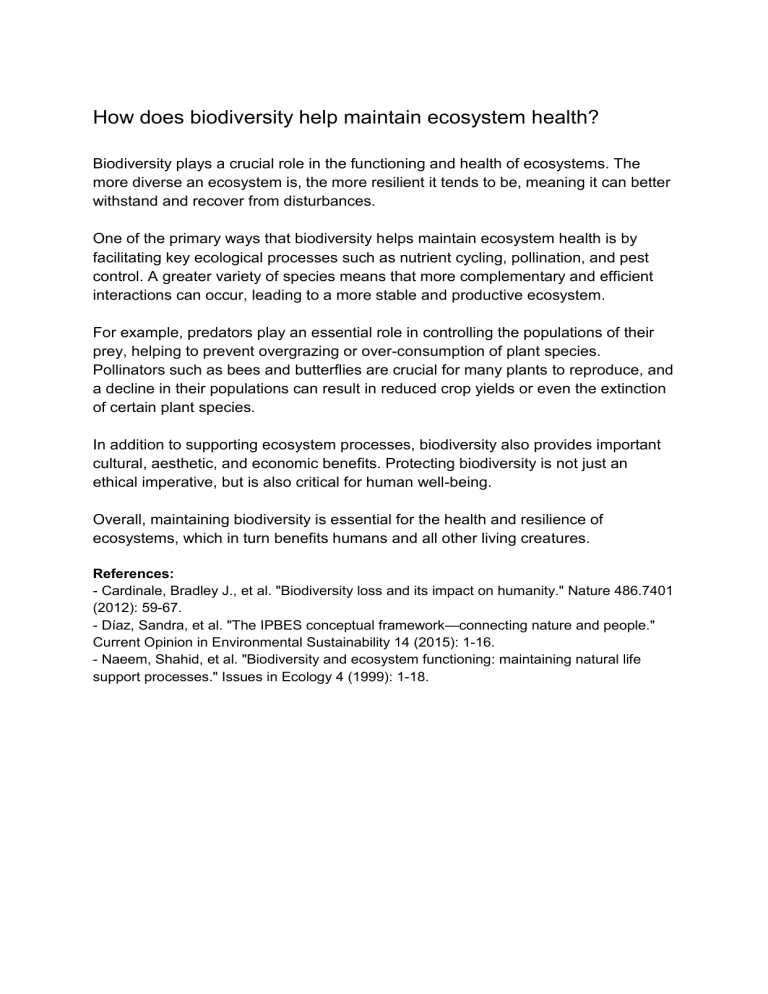
How does biodiversity help maintain ecosystem health? Biodiversity plays a crucial role in the functioning and health of ecosystems. The more diverse an ecosystem is, the more resilient it tends to be, meaning it can better withstand and recover from disturbances. One of the primary ways that biodiversity helps maintain ecosystem health is by facilitating key ecological processes such as nutrient cycling, pollination, and pest control. A greater variety of species means that more complementary and efficient interactions can occur, leading to a more stable and productive ecosystem. For example, predators play an essential role in controlling the populations of their prey, helping to prevent overgrazing or over-consumption of plant species. Pollinators such as bees and butterflies are crucial for many plants to reproduce, and a decline in their populations can result in reduced crop yields or even the extinction of certain plant species. In addition to supporting ecosystem processes, biodiversity also provides important cultural, aesthetic, and economic benefits. Protecting biodiversity is not just an ethical imperative, but is also critical for human well-being. Overall, maintaining biodiversity is essential for the health and resilience of ecosystems, which in turn benefits humans and all other living creatures. References: - Cardinale, Bradley J., et al. "Biodiversity loss and its impact on humanity." Nature 486.7401 (2012): 59-67. - Díaz, Sandra, et al. "The IPBES conceptual framework—connecting nature and people." Current Opinion in Environmental Sustainability 14 (2015): 1-16. - Naeem, Shahid, et al. "Biodiversity and ecosystem functioning: maintaining natural life support processes." Issues in Ecology 4 (1999): 1-18.






